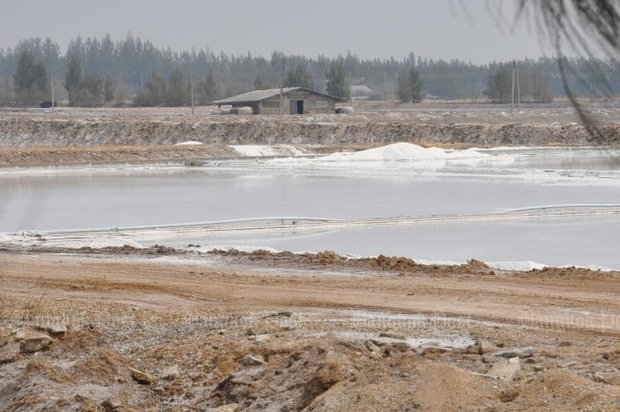
Nakhon Ratchasima: More than 500 villagers rallied Sunday against a company's underground salt mining project in Kham Thale So district amid concerns over the environmental impacts.
Protesters from tambon Phandung, tambon Nong Suang and tambon Khang Phlu in the district paraded through 15 villages to persuade other residents to join a campaign against Saltworks Co's underground rock-salt mining project covering about 600 rai.
Some are concerned underground rock salt mining can create large underground caverns, which could lead to land subsidence.
The company is excavating to explore underground salt deposits in a location about 500 metres away from Bang Nong Hua Waen in tambon Phan Dung. Saltworks Co is a major producer of salt products for the chemical and food industries.
About 100 villagers have set up camps nearby to keep a close watch on the work since June 7. Wirote Riangsantia, a protest leader, said the company was granted a licence for excavation and exploration of underground salt deposits last year.
Residents suspect the company wants to apply for a licence to mine salt, and the exploration work is intended to gather information to prepare an environmental impact assessment report which is needed as part of the process.
Mr Wirote said the company in 2013 applied for two licences to conduct salt mining covering about 600 rai in tambon Phan Dung and tambon Nong Suang. At a town meeting in 2013, most villagers voted against the company's mining licence applications and the local tambon councils of the two communities also supported the villagers' decision.
This prompted the company to apply for an exploration licence of underground salt in areas covering 10,000 rai, which include areas in the two tambons previously targeted for mining, Mr Wirote said.
The villagers have suspected the company's latest exploration bid is a move to renew efforts to push for a salt mining licence after it failed in 2013, he added.
On May 19, this year, authorities from the Internal Security Operation Centre (Isoc) and district officials held a forum for the company's representatives and villagers to discuss ways to settle their differences.
But the villagers stood their ground, arguing that if the company was allowed to excavate and explore, it would take advantage of this opportunity to proceed with mining of underground salt.
Isoc authorities suggested the Kham Thale So district chief set up a panel to monitor the company's exploration and that villagers send representatives to sit on the panel. The villagers were also asked to sign a memorandum of understanding (MoU) to join the panel. However, the villagers refused to join the panel and sign the MoU.
